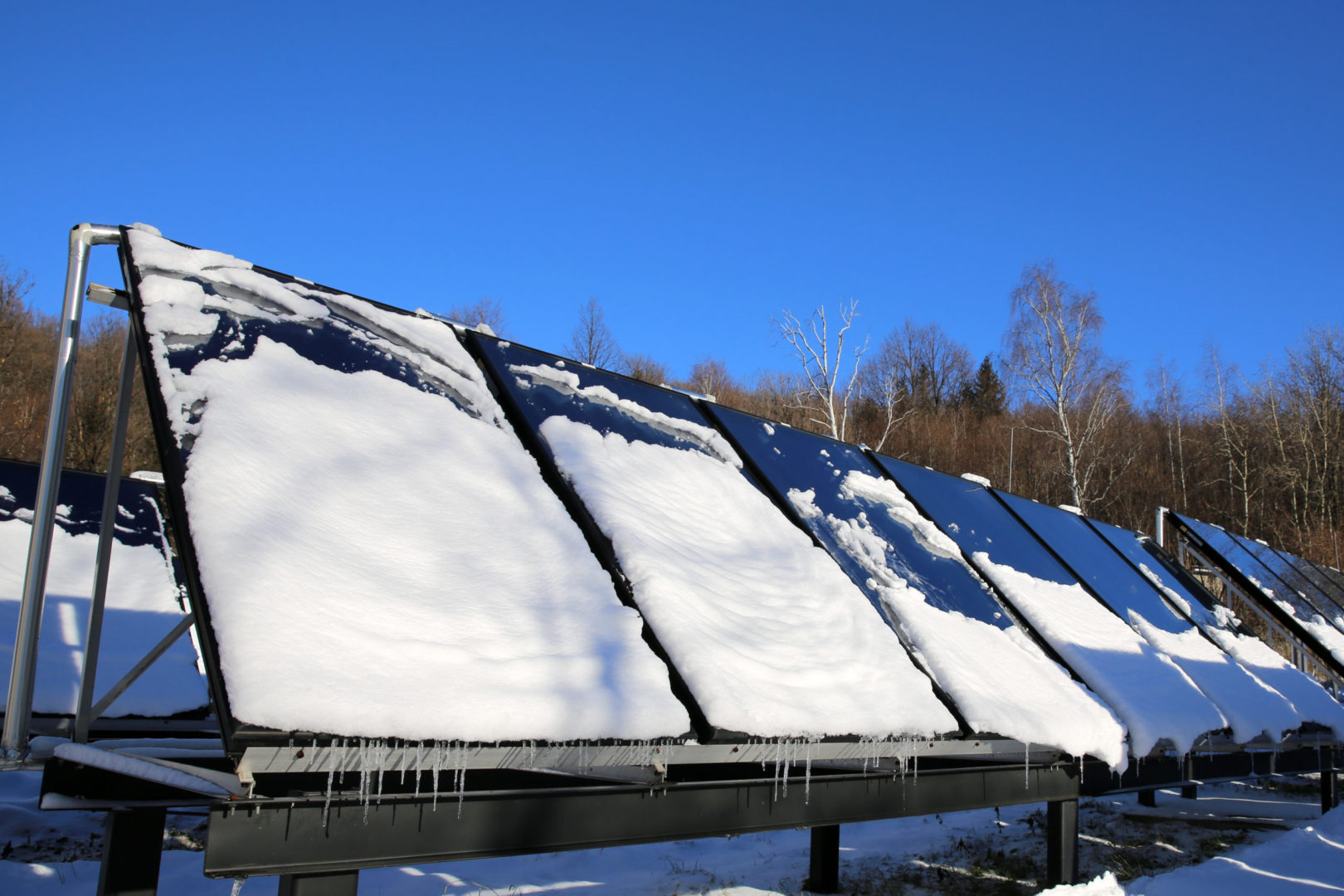Does the Cold Bother Solar Panels?
Solar Myths & Facts: Fall & Winter Edition
Fuzzy sweaters, pumpkin spice lattes, and swirling leaves mean dropping temperatures – but do they also mean your solar panels’ production will hibernate for the winter?
In a word: no.
In more words: here’s 3 persistent myths about Missouri winter solar and 3 cold, hard facts to answer them.
#1: Cold + Solar
MYTH:
- Solar panels + sunlight = electricity
- Sunlight = heat
- Therefore, less heat = less solar electricity
FACT:
- Solar panels + sunlight = electricity (FACT)
- Sunlight = light + heat (FACT)
- Solar panels + light = electricity ( FACT)
(Heat is a different energy form that is not converted by solar panels)
- In fact, frigid temperatures cause higher solar panel energy output.
- Therefore, less heat = even more electricity.
So like Queen Elsa of Frozen, the cold doesn’t bother solar panels…it actually makes them more powerful.
#2: Dark + Solar
MYTH:
- Solar electricity = solar panels + sunlight
- Winter = less sunlight
- Therefore, winter = less solar electricity
FACT:
While shorter days do decrease solar production a bit (Missouri is below the 45th latitude, so not by much), that doesn’t necessarily mean a higher out-of-pocket electric bill.
Missouri’s net metering program ensures that your utility company credits you for the excess electricity that many solar panel systems feed into the grid. On months that you may experience a lower production (such as in winter when we experience shorter days), you may be able to use those previous energy credits to help pay your electric bill. Of course, credit usage may vary slightly depending on which utility provider you are with.
(Fun fact – Germany receives the same amount of sunlight as Alaska, yet is the world’s leading solar market!)
#3: Snow + Solar
MYTH:
- Winter = snow cover (at least in Missouri)
- Snow cover = less sunlight on solar panels
- Therefore, winter = less solar electricity
FACT:
- Most solar panels are installed at an angle and facing the sun (south, east or west), so snow slides off them quickly.
- The “albedo” effect of sparkling virgin snow reflects additional light onto your solar panels, ensuring even greater production.
Final tip: It’s rare that heavy snowfalls will obscure your panels, but just, in case, you may feel free to clean the snow off with a very light sweeping of the panels – of course, be very careful if you are on your roof.
So even Missouri’s most extreme winters only make your solar system stronger and more efficient than ever – a great reason to go solar in Missouri! To learn more about how snow affects your solar production, check out this video.
